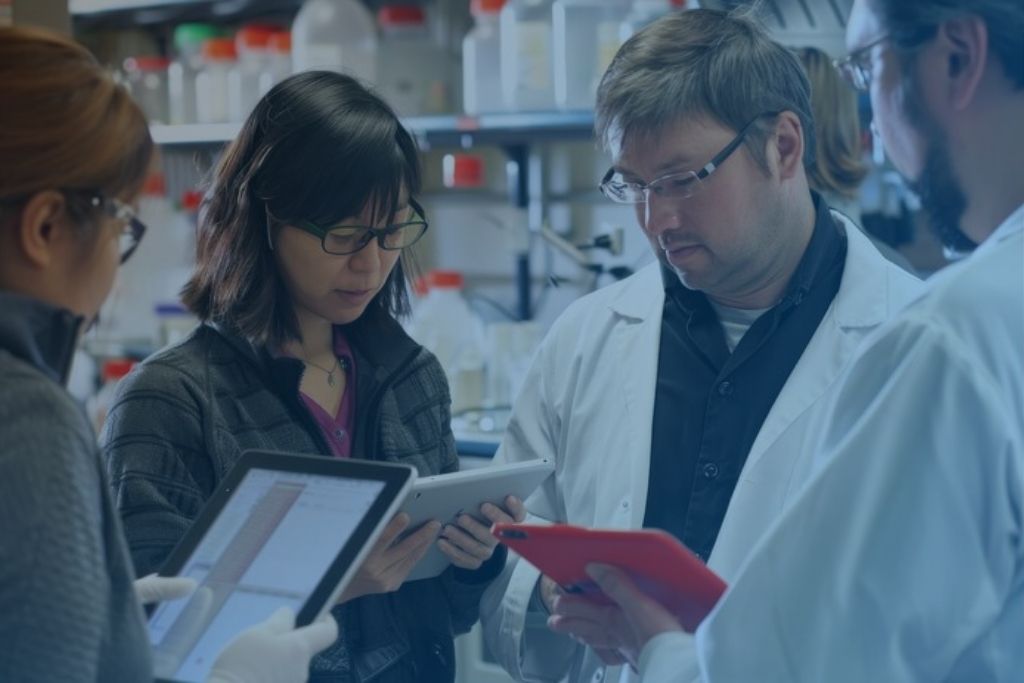
Clinical Research in Pharmacy is an important branch of clinical medicine that undertakes the investigation of medicines and their effects on the human body and also targets improvements in patient care by improving the knowledge base of existing treatment options and developing new therapies. Below, we explore various aspects of clinical research in pharmacy, including types of clinical research, common clinical trials, and the pathways to becoming a clinical research pharmacist.
What Are the Types of Clinical Research?
Depends on ‘what’ type of data is collected – financial data, administrative records, etc. Broadly speaking, the same can be grouped into two broad categories: observational studies and interventional studies.
Observational Studies: No interventional measures are implemented by the researchers. People usually do these experiments to assess certain health behavior aspects, disease progression, or even the extent to which treatments are adhered to.
Interventional Studies (Clinical Trials): These employ new strategies, processes, or drugs and measure the degree of risk associated with them and the degree of effectiveness attained. Types of trials within this category include descriptive trials, treatment trials, prevention trials, diagnostic trials, and screening trials145, among many others.
5 Most Common Types of Clinical Trials
New drugs and other novel treatments must undergo testing, which is every clinical trial’s purpose. The five most common types include:
Treatment Trials: Determine the effectiveness of new drugs or drug combinations Therapies: determine if new drugs or systems of drugs have an effect on a specific illness or disease.
Diagnostic Trials: These assess the new methods or technique for disease diagnosis.
Screening Trials: These deal with the investigation of the best possible techniques for the early diagnosis of diseases.
Quality of Life Trials: These aim at finding new means of enhancing the comfort and quality of life of patients suffering from chronic diseases234.
How to Become a Clinical Research Pharmacist?
With all the above facets, practice, licensure, specialization and education, a clinical research pharmacist can be trained successfully in the following steps:
Education: PharmD degree acquired from an accredited pharmacy institution.
Licensure: NAPLEX and other state tests such as qualifying exam for pharmacy licensure after graduation.
Experience: Participating in pharmacy practice or clinical practices usually through hospitals, their internships or residencies.
Specialization: Certification in clinical research can be done through ACRP or SoCRA or ProRelix Education and a few more professional organizations.
Continuous Education: Practicing clinical pharmacologist or pharmacist will always need to continue gaining knowledge regarding CMRs14.

Phases of Clinical Trials in Pharmacology
Clinical trials take place in four main phases as follows:
Phase I Trials: The main purpose of these trials is safety and efficacy assessment as these are the objectives of clinical research. A few healthy volunteers are recruited and given the new medicine to study its safety and adverse reactions.
Phase II Trials: These studies will involve a larger population to assess the drug’s e effectiveness, but in this case safety measures will be continuous.
Phase III Trials: These trials are controlled studies and utilize thousands of patients to test the effectiveness of the drug, its adverse effects, and also compare it with the best existing therapies.
Phase IV Trials: These are also known as post-marketing studies, which provide additional information about the dangers and benefits of the drug and its use once it has been cleared by the responsible authorities125.
Phases of Clinical Trials in Industrial Pharmacy
As in pharmacology, so in industrial pharmacy, the phases of clinical trials are consistent but the features concerning the drug’s market or industrial development are of more emphasis:
Phase I: Dosage determination studies that target healthy participants.
Phase II: Studies intended to evaluate the therapeutic effect of the drug in patients having the condition.
Phase III: A submission study covering efficacy and detailed safety that is controlled and carried out on many patients.
Phase IV: Segment which is aimed at monitoring the perceived effects of the drug on the entire population24.
4 Phases of Clinical Trials
Such is the significance of the four phases, that every new medication is subject to clinical testing spanning across them all irrespective of its advancement to a particular phase of the market entry TTD:
Phase I: Conduct safety tests in an individual.
Phase II: Enroll larger populations for marketing purposes and test efficacy.
Phase III: Run study in many countries with the hope of marketing the drug to those countries.
Phase IV: Study and analyze the period after approval to assess control safety13.
Clinical Research in Pharmacy is relevant in developing the science of medicine and in the enhancement of patient care standards through elaborate procedural as well as ethical channels. The transition in training to the placement as a clinical research pharmacologist is exciting with several avenues for professional development and putting new ideas in the medical environment.
Read More:
ICH GCP Good Clinical Practice Certification Online Free
Best Clinical Research Certification Programs Online: Get You Hired Instantly!
FAQ’S
What is clinical research in pharmacy?
Clinical research in pharmacy involves studying pharmaceutical drugs and therapies on human volunteers to evaluate their safety, efficacy, and overall effectiveness in treating medical conditions.
Why is clinical research important in pharmacy?
Clinical research ensures that medications are safe for public use, meet regulatory standards, and effectively treat or prevent diseases. It plays a crucial role in advancing medical science and patient care.
What are the career opportunities in clinical research in pharmacy?
Opportunities include roles such as Clinical Research Associate (CRA), Clinical Research Coordinator (CRC), Data Manager, Pharmacovigilance Specialist, and Regulatory Affairs Manager.
Who regulates clinical research in pharmacy?
Regulations vary by country. In the USA, the FDA (Food and Drug Administration) oversees clinical trials. Other regions have agencies like MHRA (UK), EMA (EU), or CDSCO (India) to regulate trials.
How does clinical research in pharmacy differ from basic research?
Basic research focuses on understanding disease mechanisms and drug discovery, whereas clinical research tests these discoveries in humans to ensure their safety and efficacy.


